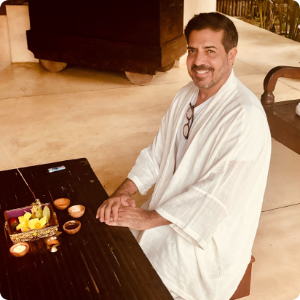Forgiveness: A Journey Towards Freedom and Healing
Jul 11, 2025
Forgiveness is often misunderstood and misrepresented. It's not just a moral or religious concept but a deeply personal journey that each of us must navigate in our own way.
This post aims to shed light on the true nature of forgiveness, exploring its complexities, challenges, and the transformative power it holds.
Forgiveness as a Personal Experience
Forgiveness is fundamentally a personal experience, unique to each individual. It’s not about the other person or their actions; rather, it’s about how we process our emotions and come to terms with our own internal struggles. Forgiving someone doesn’t change the past or the actions that occurred; instead, it transforms our relationship with those actions and our feelings about them.
The Stopping of a Feeling
Forgiveness is often misconceived as a mere cessation of negative feelings towards someone. While it does involve a change in how we feel, it’s important to understand that these feelings are deeply tied to our internal world. Forgiveness is less about the person who wronged us and more about releasing ourselves from the emotional hold of those feelings.
Radical Forgiveness: Acknowledging Our Part
Radical forgiveness involves a profound shift in perspective: recognizing that we had a hand in what happened. This doesn’t mean we’re to blame for the wrongs committed against us but rather that our own perceptions and reactions played a role in our experience. It’s about understanding that we are co-creators in our emotional responses.
The Original Wound
Forgiveness often brings us face-to-face with our original wounds. When we are triggered by someone’s actions, it highlights unresolved issues within us. These triggers point to deeper, pre-existing vulnerabilities that need attention and healing. Our emotional reactions provide clues to the aspects of ourselves that are still in need of care and growth.
Living in a Relational World
We live in a relational world where we inevitably encounter friction and conflict with others. These interactions are opportunities to understand and address our own internal wounds. Every conflict is a chance to grow and transform, but it starts with how we manage our own emotional responses.
Truth is a Subjective Reaction
Our perception of truth is subjective, shaped by our beliefs, experiences, and emotional states. What might seem like a significant offense to one person may not hold the same weight for another. Our emotional reactions often reflect our personal interpretations of events rather than objective truths.
Emotional Reactions as Pathways to Growth
Our emotional reactions are not just responses but also gateways to personal growth and transformation. When we experience intense emotions, they often signal underlying issues that need to be addressed. By exploring these feelings, we can uncover valuable insights and opportunities for self-improvement.
The Victim Mindset
The victim mindset can prevent us from taking personal responsibility and moving towards forgiveness. It positions us as powerless and stuck, rather than acknowledging our own role in the situation. Shifting from a victim mindset involves recognizing that “what is not of love is a call for love,” and using this realization to guide our path towards healing.
Understanding Others’ Wounds
We cannot fully comprehend what led someone else to act in a certain way. Their behavior often reflects their own unresolved issues and wounds. Understanding this can help us cultivate compassion rather than judgment, as we recognize that their actions are more about their own struggles than about us personally.
The Causal Stream
Forgiveness involves accepting that we don’t need to know all the causes behind someone’s behavior to forgive them. Everything that happens is part of a larger causal stream that we choose to interpret and respond to. Forgiveness is a choice we make in how we engage with the events in our lives.
Forgiveness as a Process
Forgiveness is not a destination but a process. It involves navigating through our emotions, understanding our triggers, and gradually letting go of the pain. This journey requires patience, self-reflection, and an openness to healing.
What Gets in the Way of Forgiveness?
Several factors can impede our ability to forgive:
Resistance: Forgiveness often requires confronting the initial pain, which can be uncomfortable. Our resistance to this process can delay healing.
Shame: Shame can act as a roadblock. Unhealthy shame focuses on personal inadequacies, while healthy shame addresses behaviors and fosters humility. It’s crucial to differentiate between these to avoid dehumanizing others and to promote authentic remorse.
Righteousness: Feeling superior to someone can prevent us from forgiving them. Righteousness keeps us entrenched in our grievances and away from the healing potential of forgiveness.
Steps Towards Forgiveness
Embrace the Full Story: Start by fully embracing your feelings and the victim mindset. Acknowledge the complete emotional experience you had. Separate Facts from Interpretation: Distinguish between the objective facts of what happened and your personal interpretation of those facts. Reframe Your Story: Understand the beliefs and thoughts that influenced your interpretation and work on reframing your story to foster a more compassionate view. Feel to Heal: Allow yourself to feel your emotions deeply. True forgiveness involves processing these feelings fully.
Forgiveness and Free Will
Consider how much choice the other person had in their actions. This reflection is an opportunity to extend compassion, recognizing that their behavior might stem from their own limitations and suffering.
Self-Forgiveness and Self-Acceptance
Ultimately, forgiveness comes down to self-forgiveness and self-acceptance. Often, we are the ones standing in our own way of forgiving others. By working on accepting ourselves and letting go of our grievances, we can find true freedom.
Separation vs. Boundaries
Forgiveness doesn’t mean we have to maintain close relationships or ignore boundaries. Healthy boundaries are crucial even after forgiveness, helping to maintain personal well-being while navigating relationships.
Moving Beyond Forgiveness
Forgiveness is about clearing the path for our own emotional freedom. On the other side of forgiveness lies a sense of liberation and peace, allowing us to live more fully and authentically.
Forgiveness is a journey, not a destination. It’s about understanding ourselves and others, embracing our emotional responses, and choosing to let go of what no longer serves us. Through this process, we pave the way for healing and a deeper sense of freedom


